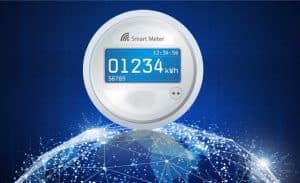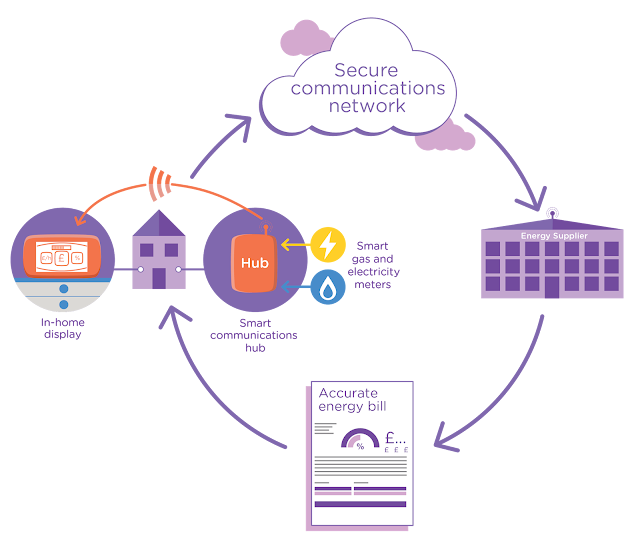Smart Meters are the Backbone of the Smart Grid
SMART Idea - Smart Meters
In the future, ideally, all grids in industrialized countries will be modern, digitally-backed smart grids, enhanced by smart meters. For decades, residential and commercial energy, water, and gas, were measured by conventional one-way meters; with utilities billing energy customers based on data determined by periodic readings. Despite relative accuracy, these traditional systems are cumbersome and inefficient.
 Smart meters are a technological solution to old energy meter systems, improving energy efficiency - recording, storing, and transmitting real-time energy consumption data by a residence or commercial building back to the utility.
Smart meters are a technological solution to old energy meter systems, improving energy efficiency - recording, storing, and transmitting real-time energy consumption data by a residence or commercial building back to the utility.
Smart meters also send digital data of services provided by utilities directly back to energy customers for real-time monitoring; in addition to sending data to the utility for resource management. Outside of the amount of energy (or other utility resources) used and the corresponding cost of energy, smart meters can send near-instant power, gas, and water, outage notifications.
Smart meters monitor energy quality, quantity, and time of electricity consumption - all with easy-to-read displays showing real-time data for monitoring and management by both customers and utilities; transmitted via secure wi-fi enabled communications networks. Smart meter systems can also provide breakdowns of energy sources with exact quantities of different sources of energy used, and can even provide quantified energy uses by individual home appliances (given that the appliance is linked into the smart wi-fi network, and especially in the case of smart home appliances).
Here is a simple diagram of how smart meters work:

Smart meters will soon replace standard electric meters for most utilities in the developed world. Smart energy meters give utility companies and consumers a clear look at energy usage, and allow companies to offer lower rates during off-peak times. Because smart meters dramatically reduce the amount of labor required to monitor consumption, they also represent direct savings to utilities (as well as energy customers); allowing investment in smart grid development concepts and other environmentally-friendly technology.
Smart meters eliminate estimated bills, allowing households and companies to better budget for utility costs by providing 100% accurate statements of utility use. Utilities see a reduction in operation cost, and improvements in energy efficiency, when smart meters are integrated into a smart grid (a smart grid uses a network that works with two-way communications to increase or decrease energy production based on local usage at any given minute; matching energy demand with energy supply).
For a detailed description of smart meter technology; as well as detailed insights on the benefits of smart meters in terms of increased cost-efficiency and energy-efficiency for customers and utilities, and also the environmental benefits of smart meter technology...please see>>>
Plan for Smart Meter Deployment in all 50 U.S. States
Many countries are working to replace traditional meters with smart meters; here are a few examples-
US: In the United States, nearly half of all energy customers have smart meters. Green City Times has developed a comprehensive plan to deploy and implement smart meters in all 50 states of the United States.
The United Kingdom plans to have smart meters in all residential properties, as well as in most small businesses, which account for about 30 million homes and 2 million commercial properties.
Canada: Every residence and business in the province of Ontario is mandated to have a smart meter. The majority of households in Canada have smart meters installed.
Japan: Private corporations in Japan currently utilize smart meters throughout the country. Over 50 million smart meters have been deployed in the country.
China: Leads the global smart meter market in terms of the quantity of smart meters deployed, with around 500 million smart meters deployed throughout the country.
Australia: The province of Victoria was the first province in Australia to implement a plan to update 2.6 million properties with smart meters, mandating a transition to smart meters for the entire province. Now, nearly every residence and business in Australia has a smart meter.
As climate change and its effects become more apparent, the energy industry is working to update the traditional grid system as quickly as possible to improve energy efficiency. Although some companies and countries are slower to adopt smart meters and similar concepts than others; the fact is that a massive overhaul of utilities worldwide is imperative.